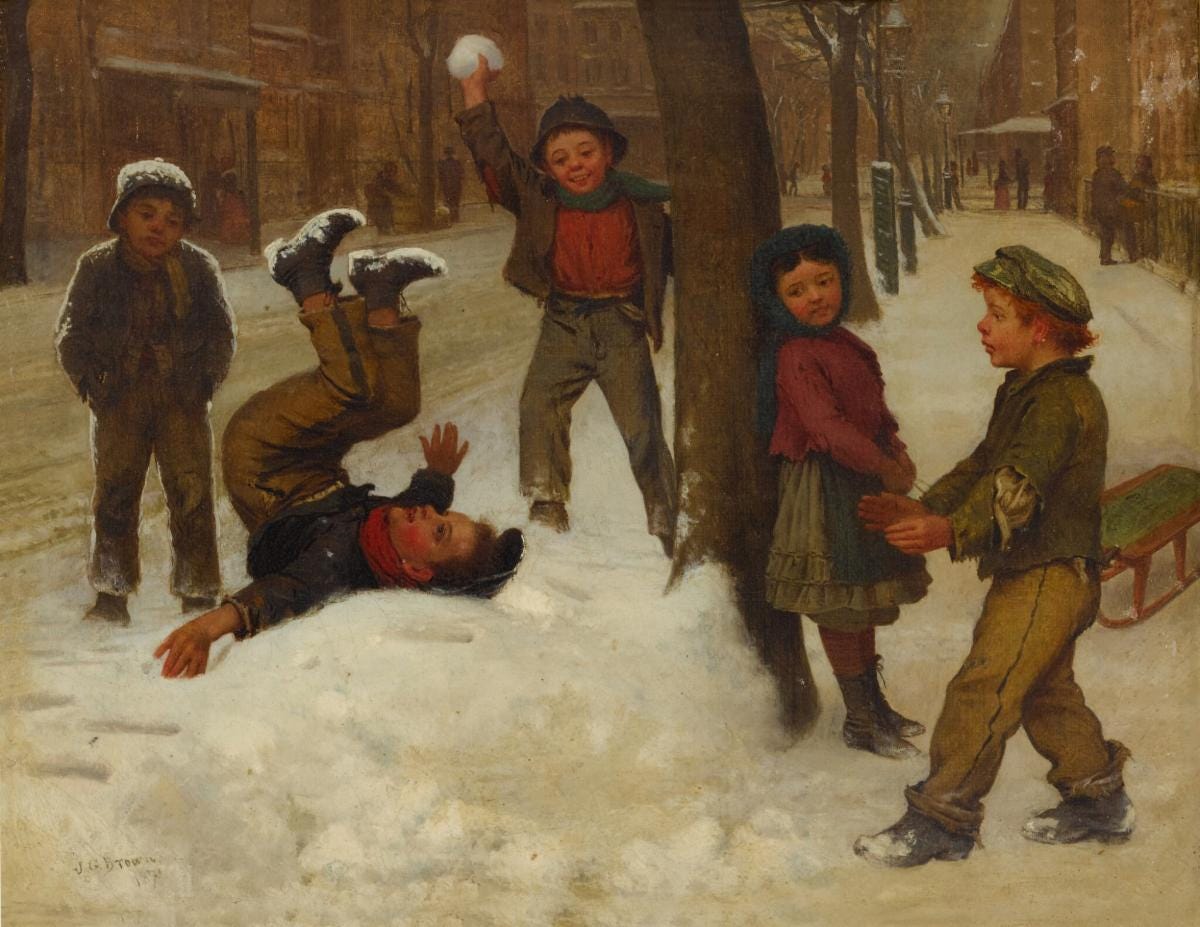The Charm of Snow Days: When Time Stands Still
The Snow Day’s enduring charm lies in its simplicity. It asks nothing of us but presence. It allows us, briefly, to step out of time’s current and linger in the stillness of a moment suspended.
Ah, the Snow Day—that unexpected gift of a day when schools close due to inclement weather, offering a pause in the relentless rhythm of daily life. It is a moment that brings delight to students, relief to parents, and a touch of levity to educators and school leaders alike. The announcement of a Snow Day is greeted with anticipation and joy, a collective sigh of relief that cuts across generations and roles. Yet beyond the practicalities of an unexpected day off, there is something magical about a Snow Day, rooted in its unique blend of natural beauty, whimsical rituals, and the rare freedom it affords.
And yet, it is not merely deliverance but ritual, for the night before a Snow Day finds itself encrusted in strange behaviors, folkloric superstitions practiced with the fervor of the devout. Students don their pajamas inside out. They hurl ice cubes into commodes in a rite of symbolic cooling, an invocation to the Frost King. They walk backward, flush their hopes down the frozen toilet, some even sleep with spoons under their pillows—silver offerings to a sky god known only to children. Such rites remind me of the theatrical rituals to banish the Curse of Macbeth: arcane, whimsical, and absolutely essential, lest their absence tempt fate into an ordinary school day.
When the morning arrives, there is the agonizing wait for confirmation. Refresh, refresh: the school website, the district’s social media feed, the radio’s scrolling ticker. And then, finally, the words appear like a proclamation from Olympus: "Closed." A collective cheer, inaudible yet palpable, reverberates across homes, buses, snow-lined streets. The world, for one luminous day, has been remade.
What follows is not chaos but a curious tranquility, the rarest of commodities: a day with few expectations. The snow itself provides the stage. It falls in thick, hushed curtains, muffling the sharp edges of the world, transforming ordinary lawns into tundras, rooftops into alpine peaks. Trees, their branches laden with powder, become calligraphic, inscribing some wordless poem against the pewter sky. Snow turns the known world into a diorama, a fleeting miniature of something both familiar and alien.
For children, the Snow Day is a gift outside of time. It is neither weekend nor holiday, possessing no sanctioned name on the calendar. It exists in defiance of structure. Sledding hills transform into arenas of jubilant peril; snowmen rise like sentinels over suburban yards. Mittens become sodden, noses redden, and yet, no one cares, for these are the rites of snow. The day demands no homework, no alarms. It is a surplus day, an extra, a glitch in the algorithm of life—a gift so rare that it exists only a few times in the tenure of childhood.
For parents, too, there is something liberating in the Snow Day’s imposed pause. To be sure, there are logistical headaches: meetings rescheduled, carpools disrupted, a household suddenly teeming with unanticipated energy. Yet there is also the quiet delight of watching the world’s pace slow. Parents who might otherwise chide their children for hours in front of screens instead pour cocoa and join in constructing snow forts. The boundary between adult and child blurs, softened by snowfall’s egalitarian magic.
Faculty and staff are not immune to the snow’s enchantment. Though some may lament the lost day’s disruption to carefully plotted curricula—the unit on fractions now delayed, the field trip postponed—even the most diligent teacher feels a spark of joy at the prospect of sleeping in, of savoring coffee while watching the snow accumulate like powdered sugar. A Snow Day is an invitation to shirk responsibility without guilt. It is the rare sanctioned pause, the kind that allows even the most professional among us to remember what it is to play.
School leaders, too, find themselves drawn into the Snow Day’s peculiar vortex of levity. The act of canceling school is not, as some might imagine, a burden. It is, instead, an almost conspiratorial pleasure. Who among us has not, in some moment of weary administration, longed for a deus ex machina to intervene, to wipe the slate clean for just one day? The snow obliges, its white expanse offering a tabula rasa on which nothing need be written. The decision to close school, though ostensibly one of prudence and safety, carries with it a spark of mischief—an acknowledgment that sometimes, the unexpected is good for the soul.
Perhaps the Snow Day’s enduring charm lies in its simplicity. It asks nothing of us but presence. It is not like a holiday, fraught with traditions and expectations, nor like a sick day, sullied by the demands of convalescence. It is a day without agenda, its hours as open and unmarked as the snow itself. It allows us, briefly, to step out of time’s relentless current and linger in the stillness of a moment suspended.
And so, as the snow falls, and the world is muffled in its soft embrace, there is a quiet kind of joy that settles over all who are touched by it. Students, parents, teachers, and school leaders alike find themselves united in a shared gratitude for this meteorological anomaly, this unexpected gift. For in the snow’s silence, we remember what it is to simply be—to pause, to marvel, to breathe.
Michael S. Rose, a leader in the classical education movement, is author of The Art of Being Human (Angelico) and other books. His articles have appeared in dozens of publications including The Wall Street Journal, Epoch Times, New York Newsday, National Review, and The Dallas Morning News.




Absolutely beautiful piece.